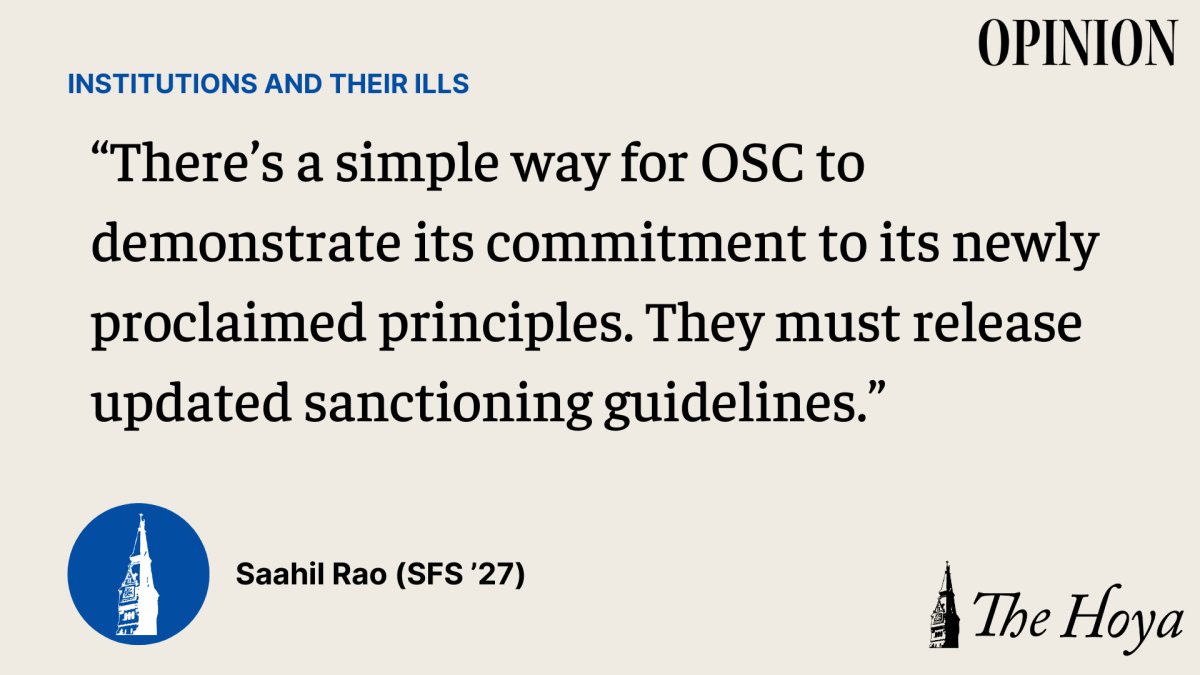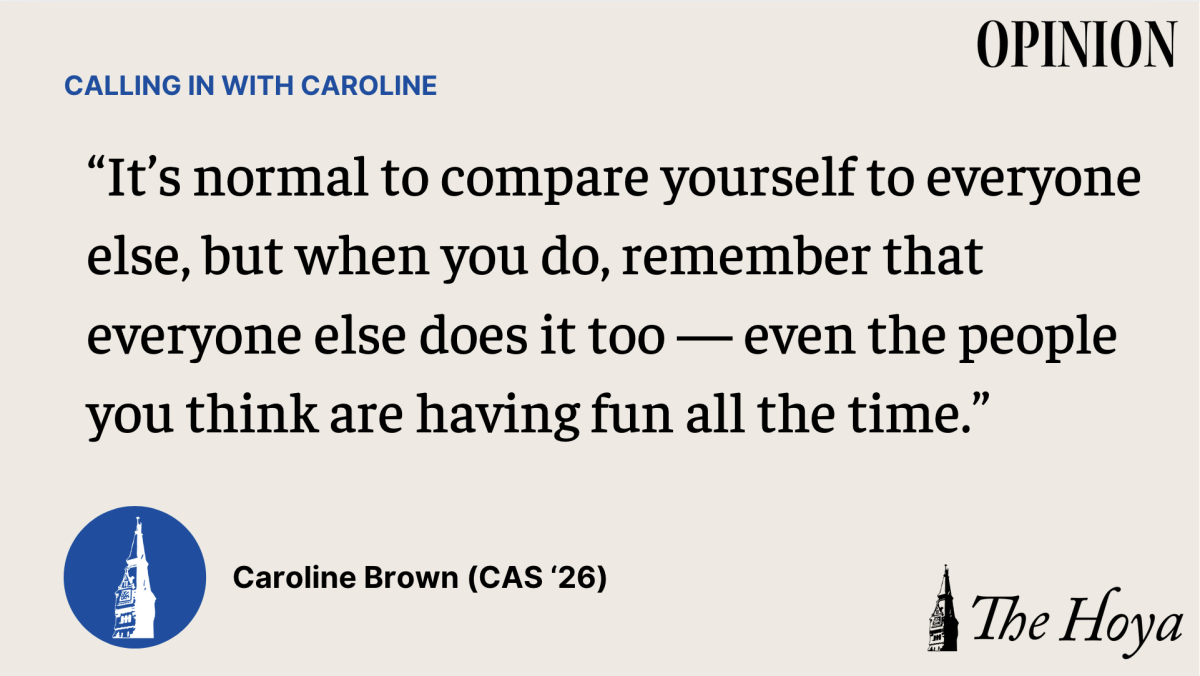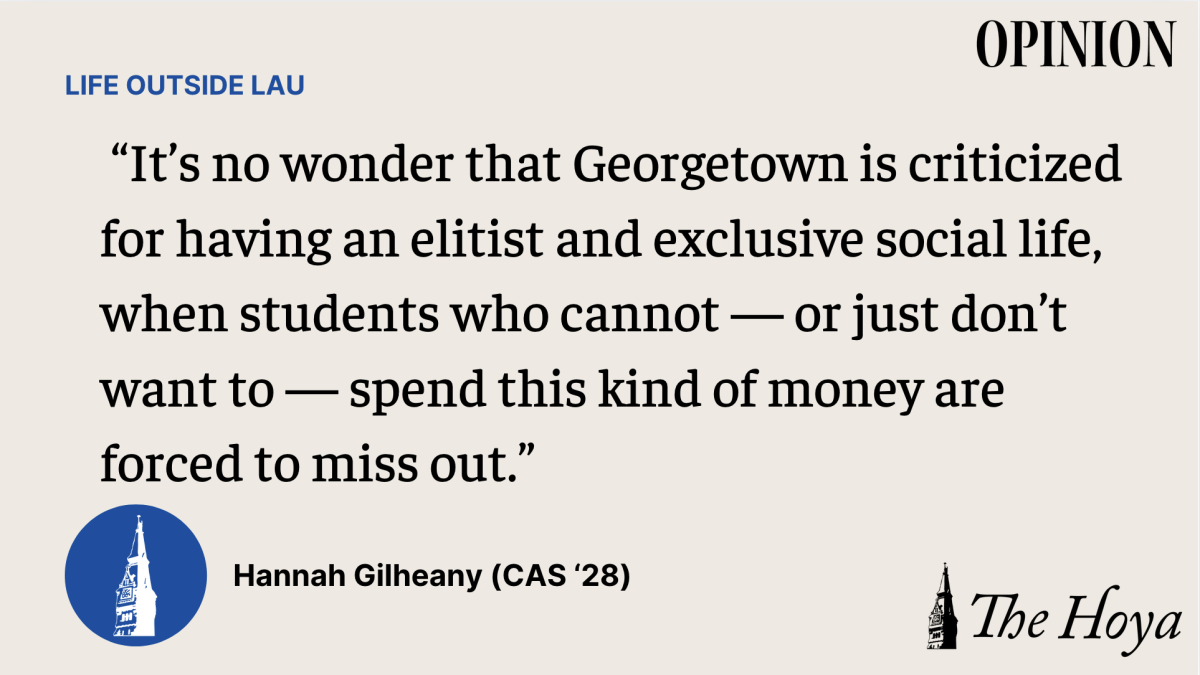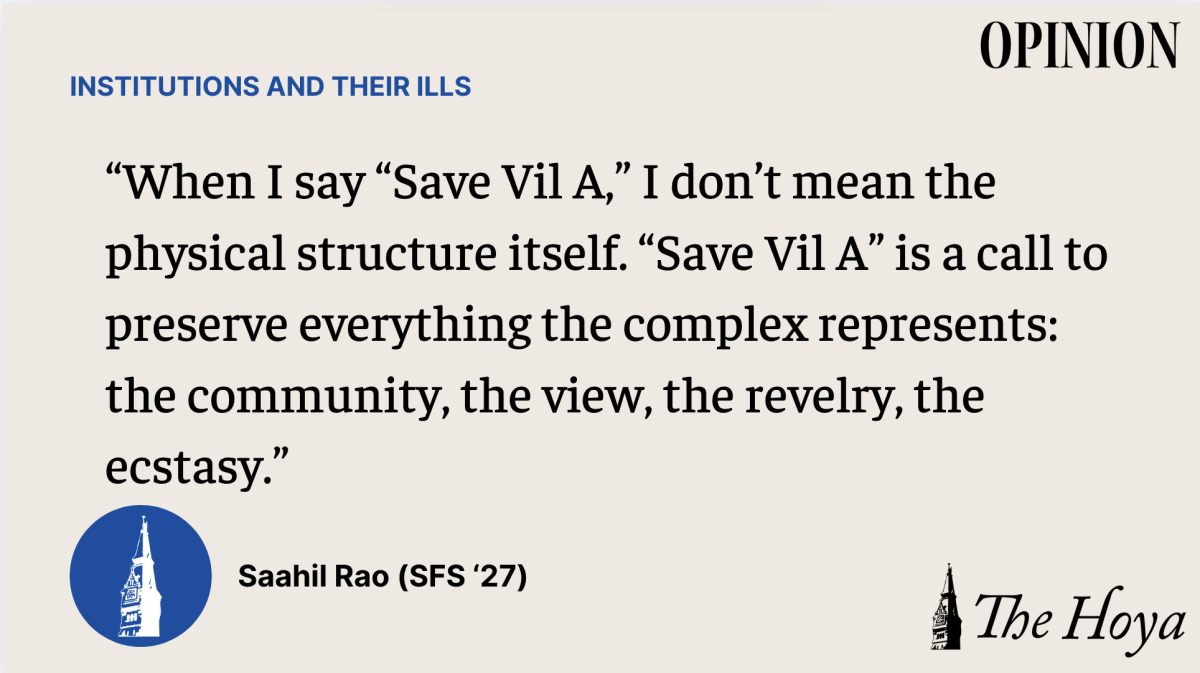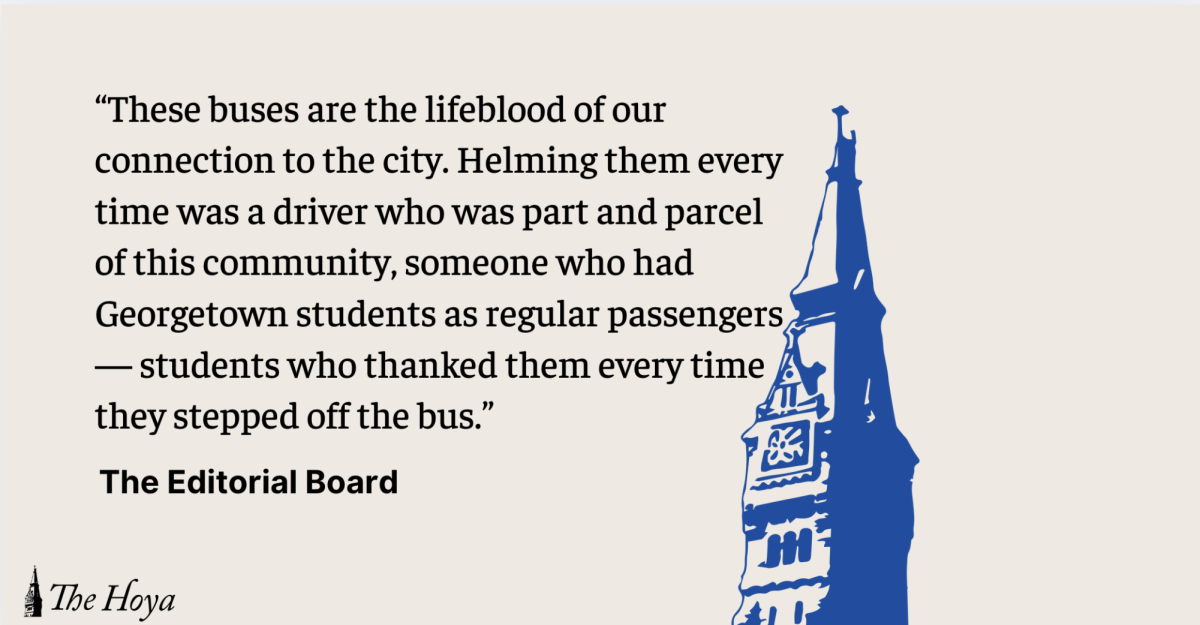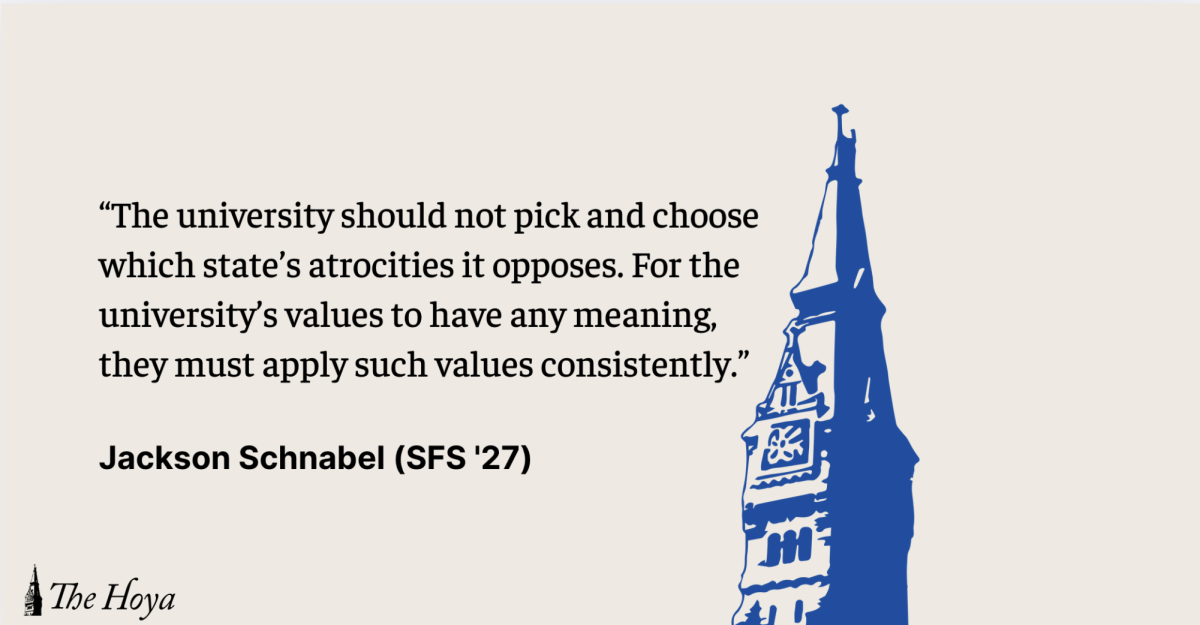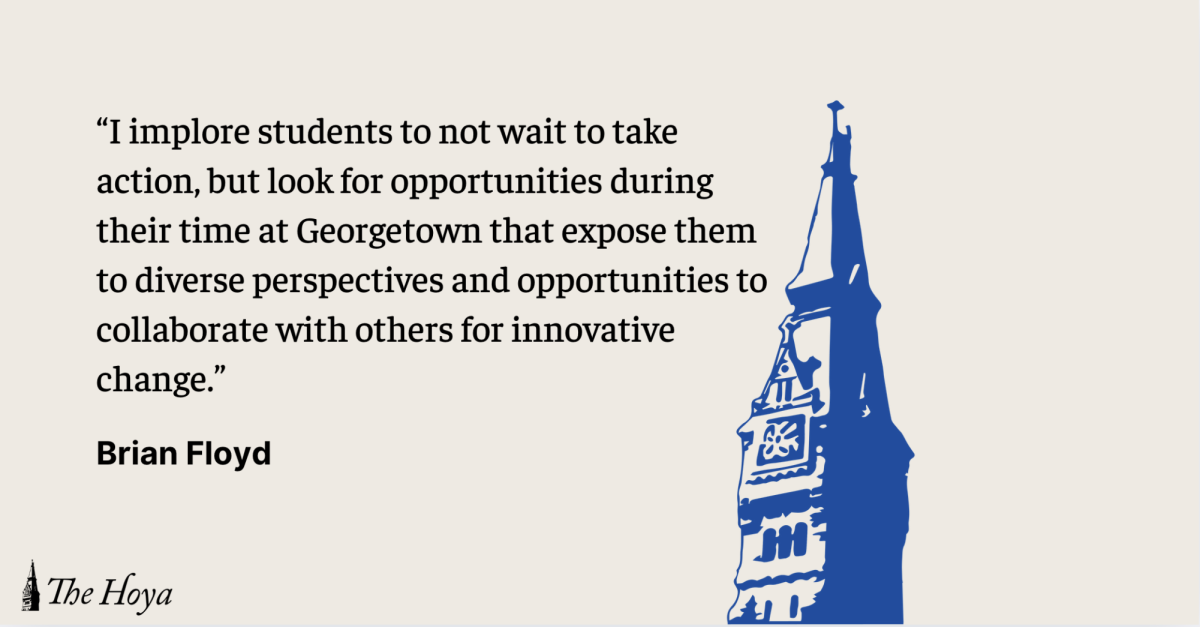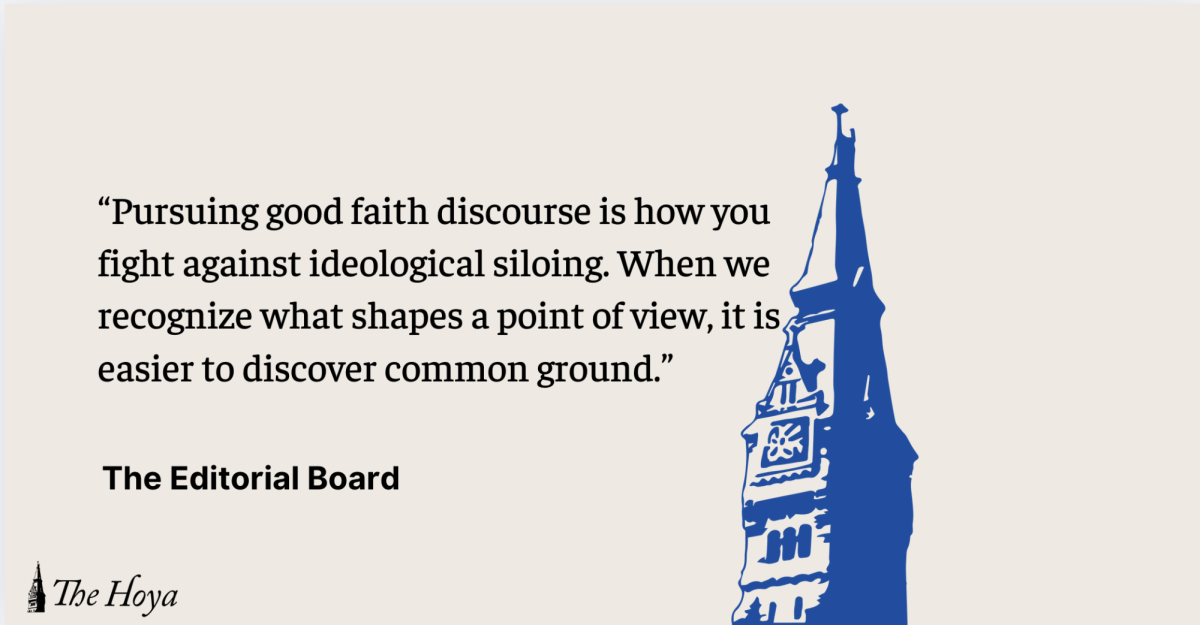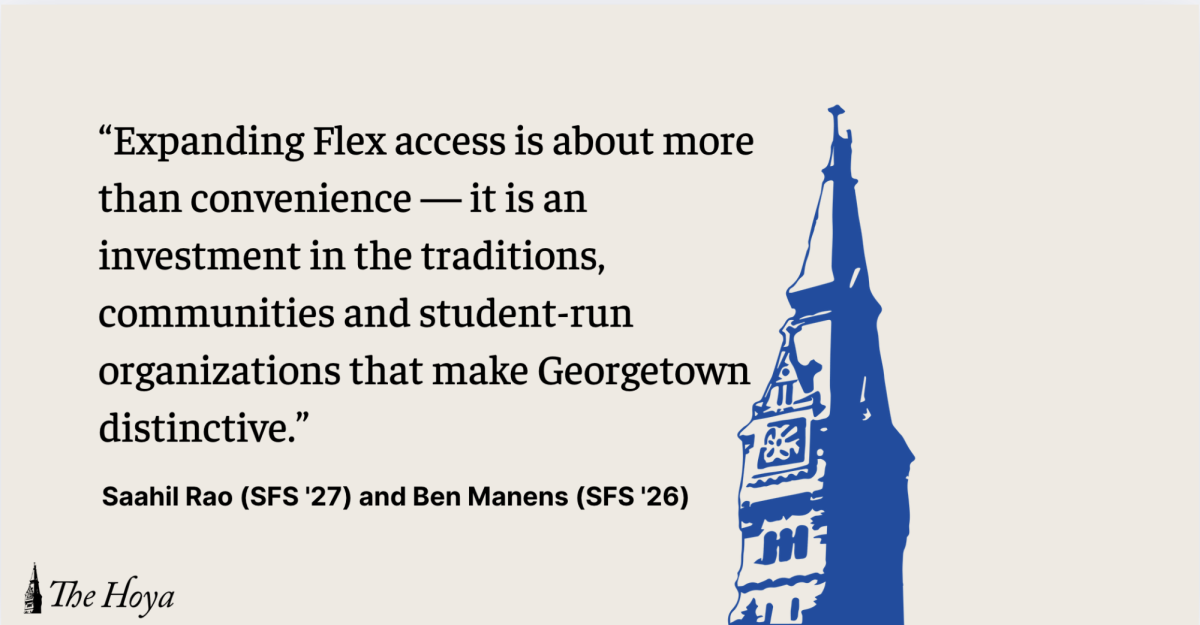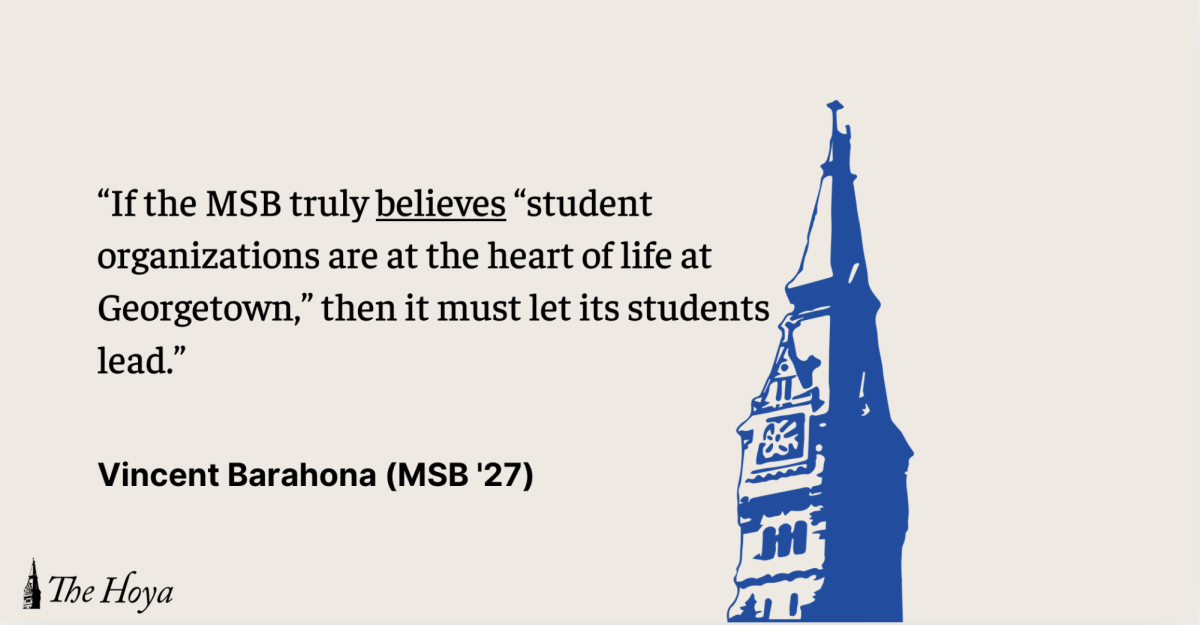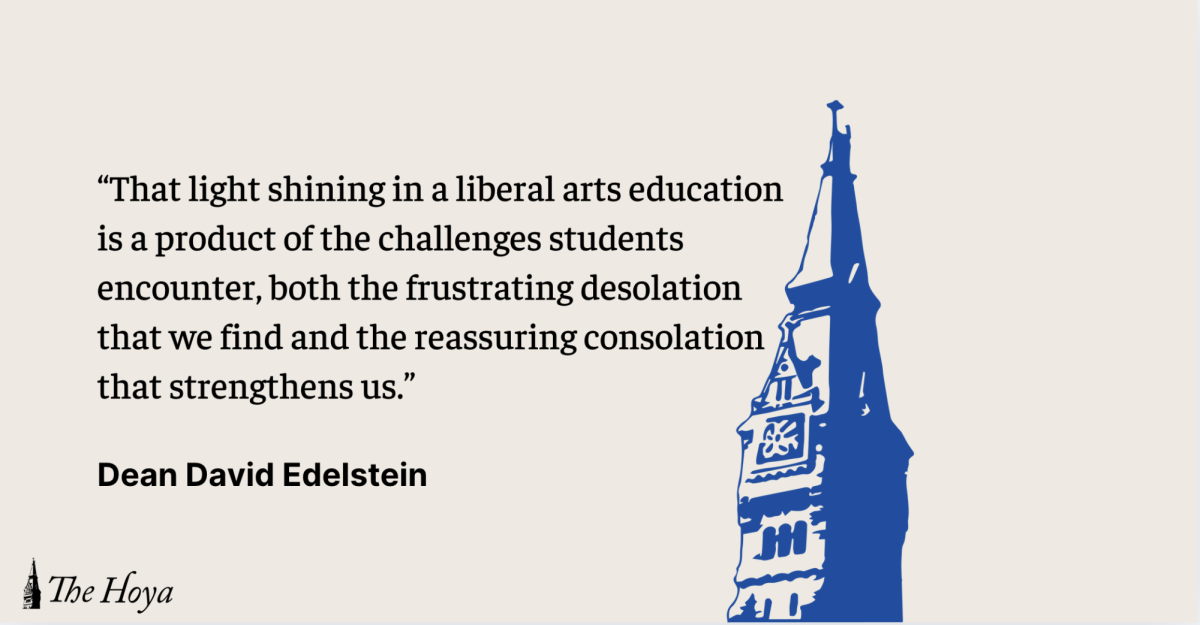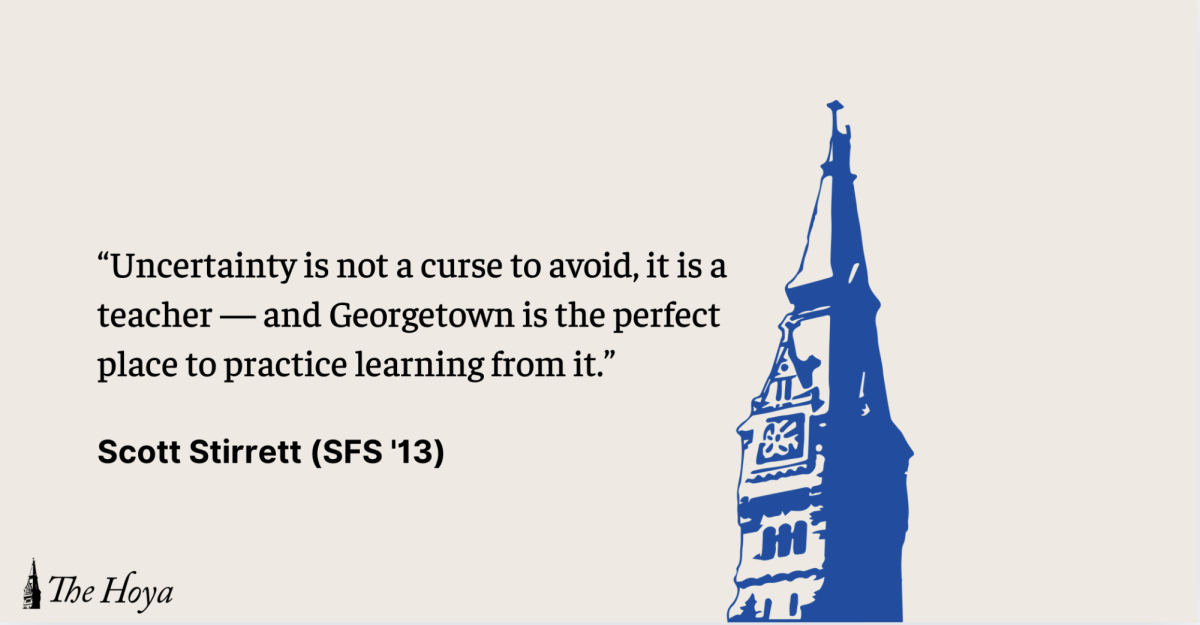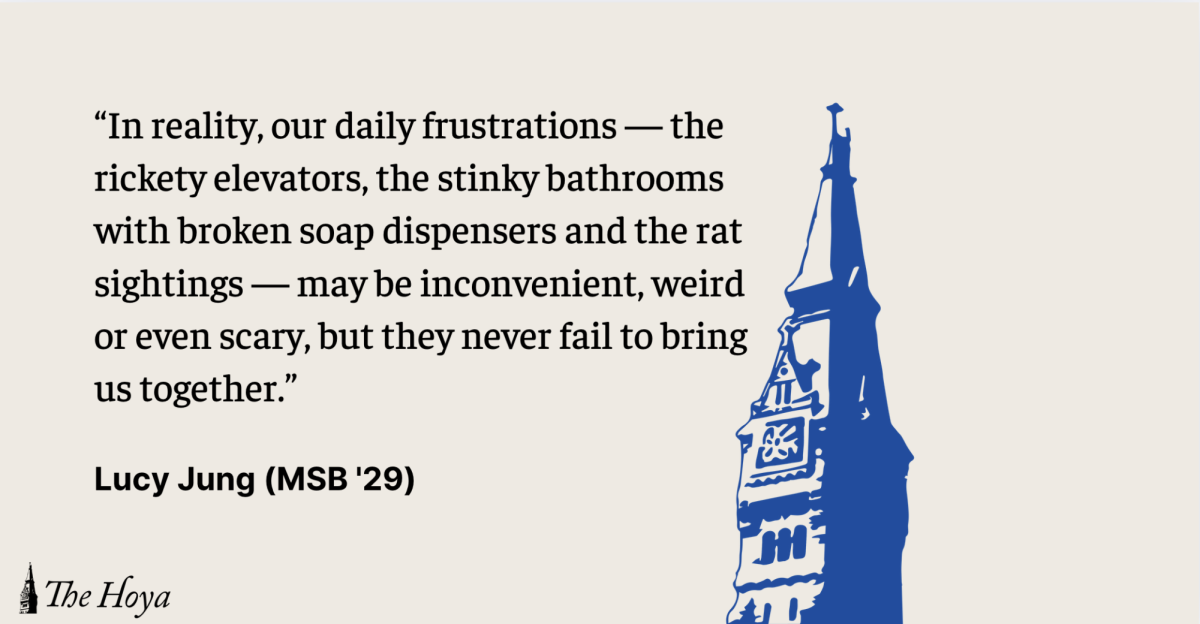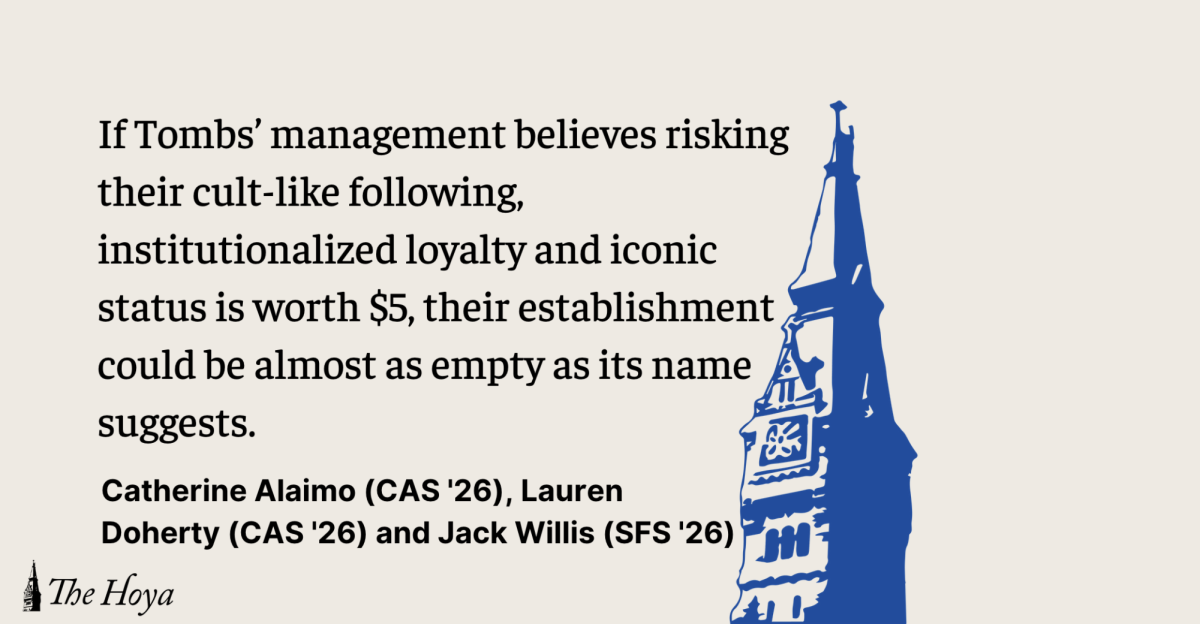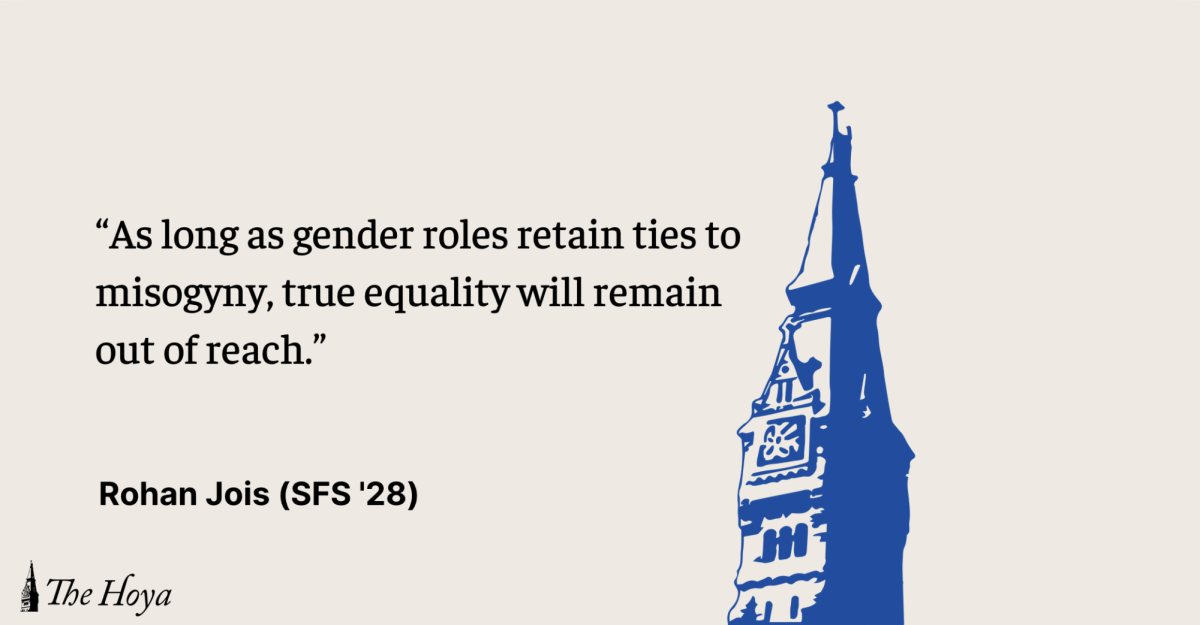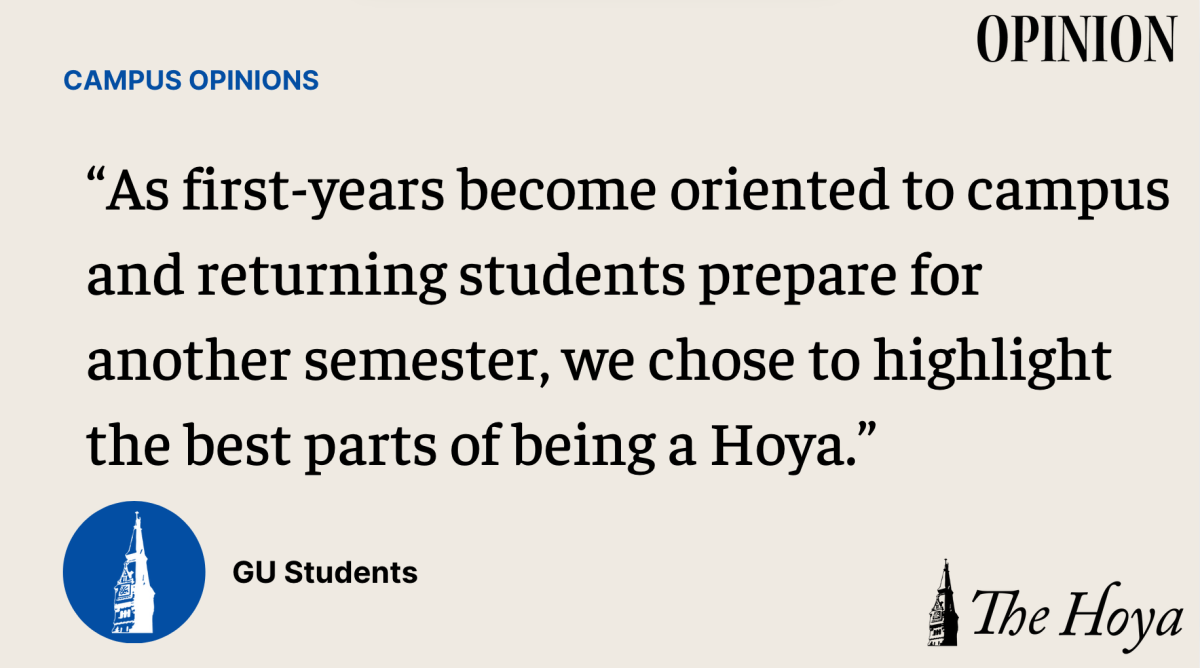This year, “restorative justice,” a philosophy that seeks to repair the harmful impact of a crime rather than solely punishing the offender, has supposedly reshaped Georgetown University’s student disciplinary process. The 2024-2025 Code of Student Conduct, written and implemented by the Office of Student Conduct (OSC), has introduced a new mechanism called the “Educational Conference” to replace the traditional disciplinary hearings of years past.
Coupled with the hiring of a new OSC director, Dr. Kernysha L. Rowe, who was chosen specifically in light of her experience creating the “blueprint” for American University’s restorative justice process, the new code almost seems to promise a new era for student discipline at Georgetown. Rowe has promised to demystify the OSC and make it a resource for students, rather than a place to be feared. This new, restorative-justice-based philosophy is laudable. However, it is difficult to see where exactly it has been implemented.
The new process functions as follows: students charged with code violations are now first scheduled for an “Educational Conference,” where they are invited to “meet with a member of Rowe’s office… to discuss the incident, learn about the process and review possible options to resolve the matter.” After this discussion, the member of Rowe’s office, formally called a community educator, can make a determination, but not necessarily a final one, of guilt. If they reach such a conclusion, the community educator can offer an “Educational Conference Agreement,” a binding document in which the accused student, “acknowledges the behavior, identifies violations of The Code (if any), and includes an action plan (sanctions) to be completed by the student to promote personal reflection and growth, repair any harm caused, and assist the student in contributing positively to the Georgetown community.”
Such an agreement would theoretically allow someone guilty of a violation to resolve it in a quick and stress-free manner, avoiding the adversarial mechanisms of the past, where, in a highly structured and formal process, students had to request incident reports before writing and presenting essay-style statements in response to them. Students are still able to have a hearing-style proceeding if they reject the offered agreement in the educational conference, a mechanism that OSC now formally calls an “Administrative Conference.”
While this all seems to be kind-hearted and made with students’ interests in mind, there are some notable changes that necessarily give one pause. First, if students accept an “Educational Conference Agreement,” they lose the right to appeal their action plan/sanctions, which was previously permitted under the old system in cases of substantial procedural error, new information of substance or substantially disproportionate sanctions. Second, the standard of proof to find guilt for on-campus incidents has been lowered, leaving it easier for OSC to convict students of violations. The standard of proof in last year’s code used to be that presented evidence was “clear and convincing,” a burden more rigorous to meet than the “preponderance of the evidence/more likely than not” which is the standard for all cases now.
In some sense, these changes align with restorative justice principles, which aim to move away from technical, adversarial frameworks and toward ones focused on rebuilding relationships and community healing. Yet a truly restorative system also promises to be less punitive — that’s the “restorative” part of restorative justice.
There’s a simple way for OSC to demonstrate its commitment to its newly proclaimed principles. They must release updated sanctioning guidelines.
In previous years, the Code was accompanied by sanctioning guidelines that laid out the acceptable range of punishments for each type of violation. These guidelines gave students a basis for understanding whether their sanctions were in line with typical outcomes, helping them gauge the fairness of the process. This year, that old process has been turned on its head. Yet, OSC has not released new sanctioning guidelines to accompany the new code.
This omission is concerning. Allowing community educators to operate without guidelines offers them increased latitude. While this latitude could serve restorative ends, it also removes an important check on their authority, allowing them to theoretically offer unwitting students disproportionate sanctions. If a student accepts these sanctions through an Educational Conference Agreement they lose their right to appeal (one of the grounds for which is “substantially disproportionate” sanctions) even if the punishment proves far harsher than typical for their offense.
For the new code to live up to its principles of restorative justice, OSC must release updated sanctioning guidelines. Without this transparency, students are left to navigate a system that gives them fewer procedural protections while keeping them in the dark about potential consequences. If Georgetown truly wants to embrace restorative justice, it needs to prove that commitment through clear, published guidelines — not just promises of a new approach.
Saahil Rao is a sophomore in the School of Foreign Service. This is the third installment of his column, “Institutions and their Ills.”


